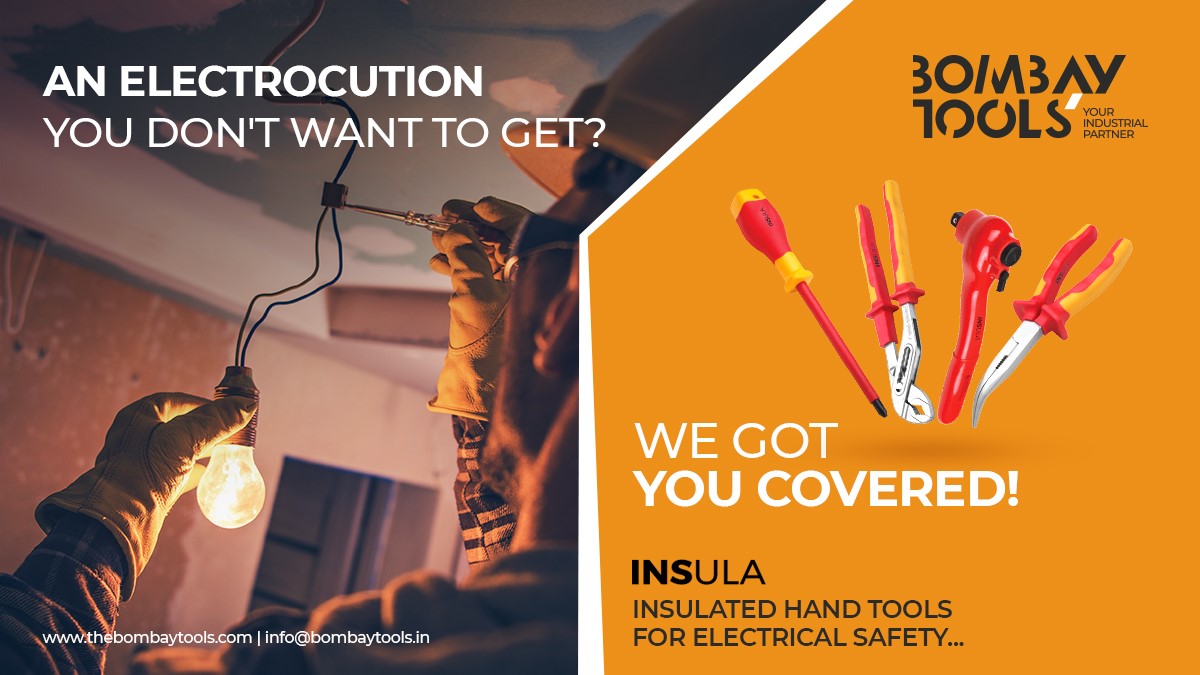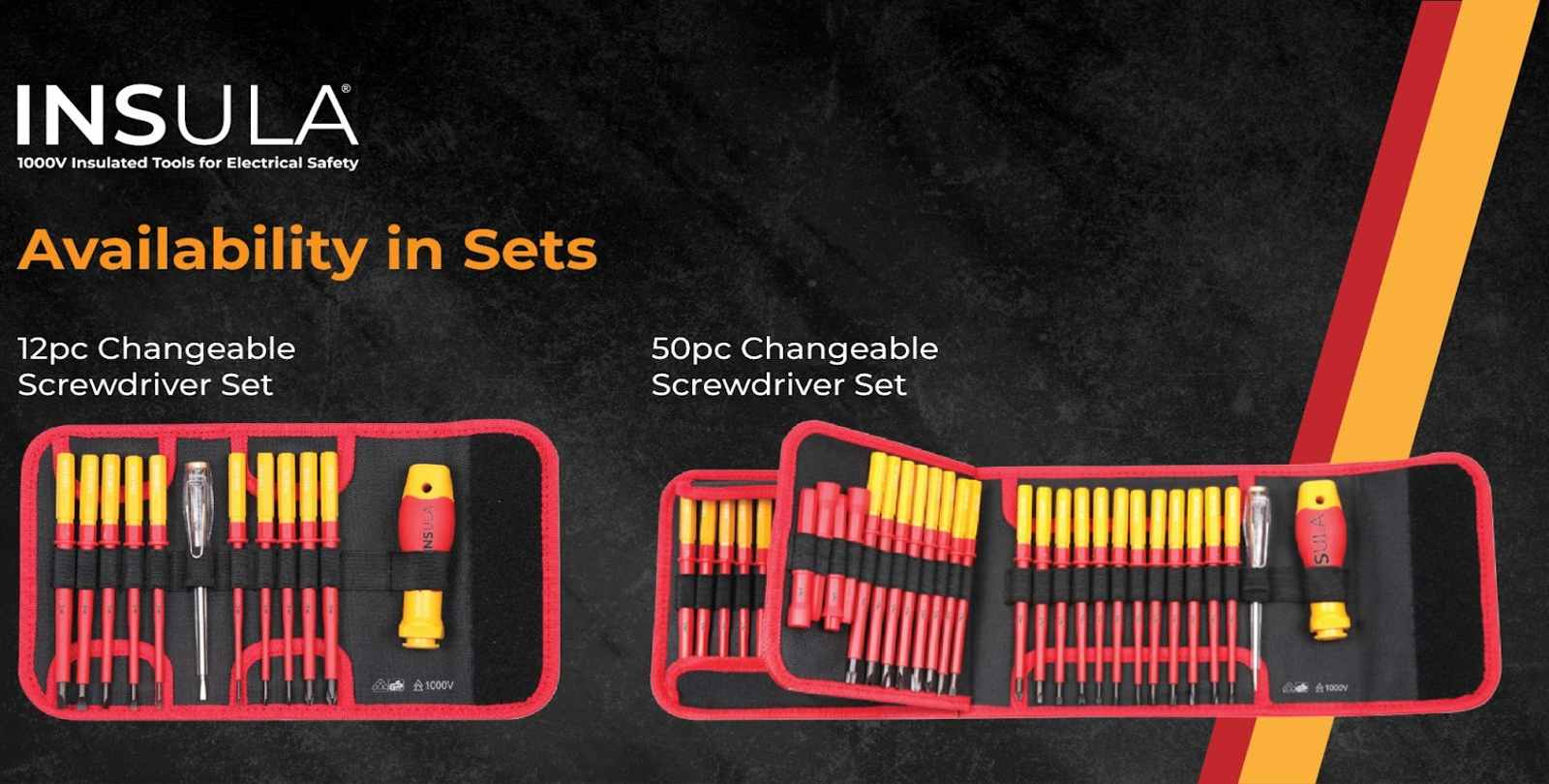
Understanding the Critical Difference: VDE Tools vs. Standard Insulated Tools
When working with electrical systems, the tools you choose can literally be a matter of life and death. While many people assume that any "insulated" tool provides adequate protection, there's a world of difference between basic insulated tools and VDE-certified electrical tools. Understanding this distinction is essential for anyone working in electrical environments, from professional electricians to maintenance technicians in industrial settings.

What Makes Standard Insulated Tools Fall Short?
Standard insulated tools represent the most basic level of electrical protection. These tools typically feature a thin coating or sleeve of insulating material applied over the metal components. While they offer some protection, their limitations become apparent when we examine their specifications and real-world performance.
The primary limitation of standard insulated tools lies in their voltage rating. Most basic insulated tools are designed to protect against voltages up to 200 volts. This might seem adequate for household applications, but it falls dangerously short in many professional and industrial environments where higher voltages are commonplace.
Perhaps more concerning is how standard insulation behaves under different conditions. The insulating materials used in basic tools often lack the sophisticated engineering required for consistent performance. When exposed to temperature extremes, these materials can undergo dramatic changes that compromise their protective qualities. In cold conditions, the insulation may become brittle and crack, creating pathways for electrical current. Conversely, in hot environments, the material can soften and deform, potentially exposing the conductive metal underneath.
The mechanical properties of standard insulation also present significant concerns. Under stress or when excessive force is applied, the insulating layer can slide, tear, or separate from the tool entirely. This is particularly problematic because such failures often occur precisely when tools are being used most vigorously – exactly when protection is most needed.
The VDE Standard: Engineering Excellence for Electrical Safety
VDE tools represent a completely different approach to electrical safety. VDE, which stands for Verband der Elektrotechnik (Association for Electrical, Electronic & Information Technologies), is a German organization that has established some of the world's most rigorous standards for electrical tool safety.
The fundamental difference begins with voltage protection. VDE-certified tools are rated for use up to 1,000 volts, providing five times the protection of standard insulated tools. However, the engineering goes far deeper than just meeting this rating. These tools undergo extensive testing at voltages up to 11,000 volts – eleven times their rated capacity – to ensure they maintain their protective properties even under extreme conditions.
This extensive over-testing isn't just about meeting standards on paper. It reflects a design philosophy that prioritizes reliability and safety margins. When a VDE tool is rated for 1,000 volts, you can be confident that it has been proven safe at voltages far exceeding what you'll encounter in typical electrical work.
Temperature Resilience: Performing When Conditions Get Extreme
One of the most impressive aspects of VDE tools is their temperature performance. These tools are engineered to maintain their insulating properties across a temperature range from -40°C to +70°C (-40°F to +158°F). This wide operating range ensures that whether you're working in a freezing outdoor environment or a hot industrial facility, your tools will provide consistent protection.
The materials used in VDE insulation are specially formulated to resist the temperature-induced changes that plague standard insulated tools. Advanced polymer compounds maintain their flexibility and strength across the entire temperature range, preventing the brittleness in cold conditions and softening in hot conditions that can compromise safety.
This temperature stability isn't just about comfort – it's about maintaining the integrity of the electrical barrier that stands between you and potentially lethal electrical energy. When insulation fails due to temperature effects, the consequences can be catastrophic.
Mechanical Integrity: Built to Withstand Real-World Use
VDE certification also addresses the mechanical properties of tool insulation. The insulating materials must be securely bonded to the tool substrate and designed to withstand the forces encountered in actual use. This means the insulation won't slide off under pressure, won't tear easily when the tool encounters sharp edges, and won't separate from the metal core even after repeated use.
The testing protocols for VDE tools include rigorous mechanical stress tests that simulate years of professional use. Tools are subjected to impact testing, abrasion resistance testing, and adhesion testing to ensure that the insulation remains intact throughout the tool's working life.
Why VDE Certification Matters in Critical Industries
The importance of VDE-certified tools becomes most apparent when we consider their applications in critical industries. In oil and gas operations, power generation facilities, and chemical processing plants, electrical hazards are just one of many risks that workers face. In these environments, tool failure isn't just inconvenient – it can trigger chain reactions that put entire facilities at risk.
The petroleum industry, for example, requires tools that can perform reliably in environments where flammable gases may be present and electrical systems operate at industrial voltages. A tool failure that creates an electrical arc could potentially ignite explosive atmospheres, making the superior electrical protection of VDE tools not just a safety feature, but a critical component of process safety management.
Similarly, in power generation and distribution facilities, maintenance work often occurs in proximity to high-voltage equipment. Even when circuits are supposedly de-energized, the complexity of modern electrical systems means that unexpected energization can occur. VDE tools provide the safety margin that can mean the difference between a close call and a tragedy.
Beyond Basic Protection: The Complete VDE Tool Ecosystem
When we consider the full range of VDE-certified tools available today, the breadth is remarkable. Modern VDE tool lines encompass everything from precision screwdrivers for delicate electronic work to heavy-duty spanners for industrial maintenance. This comprehensive approach means that every tool in a technician's kit can meet the same high standards for electrical safety.
Making the Right Choice for Your Safety
The decision between standard insulated tools and VDE-certified tools ultimately comes down to understanding the real-world conditions in which you work and the consequences of tool failure. While standard insulated tools may seem adequate for low-voltage work, their limitations in temperature performance, mechanical integrity, and voltage protection make them unsuitable for professional electrical work.
VDE tools represent an investment in safety that pays dividends in reliability, performance, and peace of mind. When your work takes you into environments where electrical hazards are present, the superior protection offered by VDE certification isn't just a nice-to-have feature – it's an essential requirement for safe operations.
Your Partner in Electrical Safety
At Bombay Tools, we understand that safety isn't negotiable in critical industries. Our specialization in both non-sparking and VDE tools reflects our commitment to providing the highest levels of protection for workers in oil and gas, power generation, and chemical processing facilities. With our comprehensive range of VDE-certified tools, we ensure that safety never comes at the expense of having the right tool for the job.
When lives and facilities depend on the reliability of your tools, choosing VDE certification isn't just smart – it's essential. Your safety is worth the investment in tools that are engineered, tested, and certified to protect you when it matters most.
